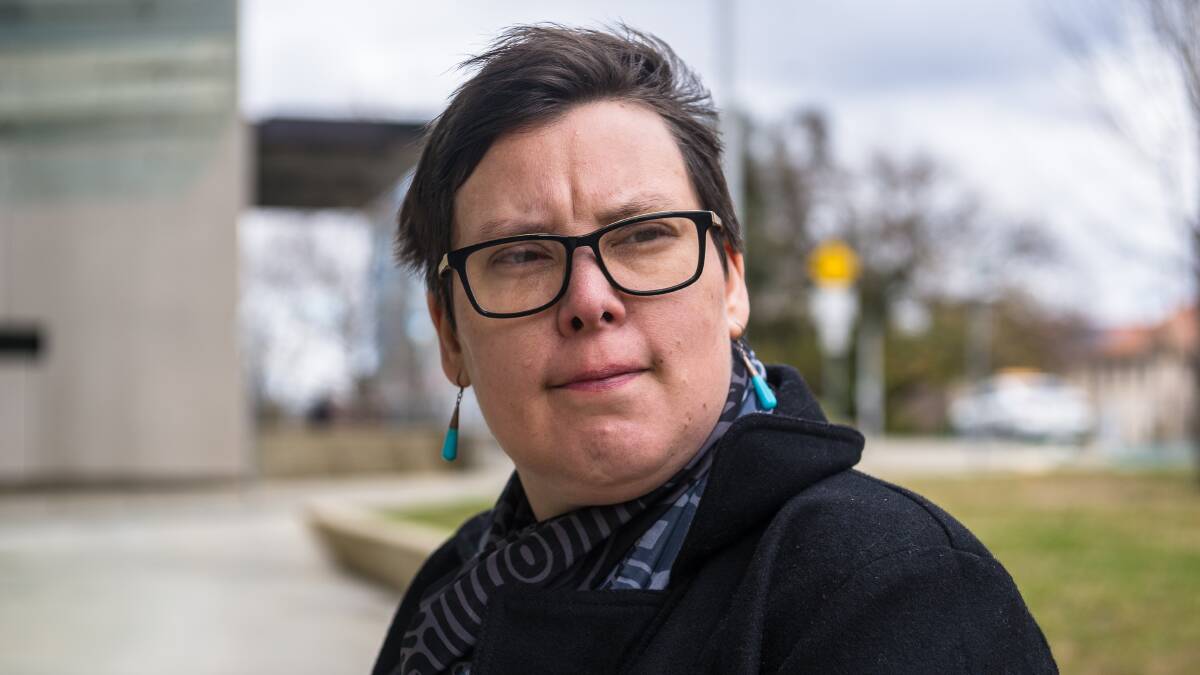Yenn Purkis describes themself as the happiest person on earth, living a life that is "off the scale amazing".
Subscribe now for unlimited access.
$0/
(min cost $0)
or signup to continue reading
But Yenn, who identifies as non-binary, wasn't always so positive. As a young adult, they could not have felt less downtrodden or defeated.

Yenn turned to drugs, alcohol and crime as they battled mental illness. Moving in and out of homelessness, they fell in with the wrong crowds and were preyed upon.
Yenn was diagnosed with autism at age 20, but refused to "accept it".
When Yenn's crimes landed them before the courts, and ultimately in prison, they soon realised the criminal justice system - and those who operated within it - simply didn't "understand it" and were therefore ill-equipped to deal with the complexities of their circumstances.
"I wasn't able to convey my needs, but even if I had, it would not have been understood," Yenn said this week.
"They were all coming from a place of misunderstanding, they didn't have the knowledge of my disability, which would have allowed them to help with a tailored solution."
By their mid-20s, Yenn believed that prison was the safest place for them.
Soonafter, Yenn reconciled, at a "deep, deep level", to turn their life around.
Yenn did, graduating from university before starting a career in the public service. Yenn has become an author, and through that process a fierce disability advocate.
But the turnaround was the product of sheer willpower and positivity, rather than the emergence of institutions, and a general public, which understood and was able to support people with a disability as they encountered the criminal justice system, either as a victim or a perpetrator.
Yenn is confident those much-needed support structures and changing attitudes are on their way, with the long-awaited release on Friday of the ACT government's disability justice strategy.
The strategy, which Labor promised during the 2016 election, maps out a 10-year plan to ensure that those with a disability have equal access to justice.
The government doesn't have clear data on the number of Canberra prisoners who have disabilities, but the report references national and international research that puts the figure at up to 50 per cent of all detainees.
The strategy notes that of all the disadvantaged groups within society, it is those with a disability who most often encounter legal problems, whether it be through accidents, consumer issues, crime, employment, personal injury or rights.
The plan will be guided by five "high-level' focus areas, including making it easier to access information, improving knowledge and awareness among those in the justice and disability sectors and ensuring better service delivery.
The government will collect data on people with a disability interacting with the justice system as part of the strategy.
A total of $4.9 million has been budgeted in the next four years to help implement the plan, which includes funding for eight new positions across government agencies.
Minister for Disability Rachel Stephen-Smith said the strategy was the result of a "significant body of work" involving organisations, agencies and community groups across the justice and disability sectors.
"For the strategy to have a meaningful impact its development had to involve people across the justice system and most importantly, be informed by people with lived experience," Ms Stephen-Smith.


